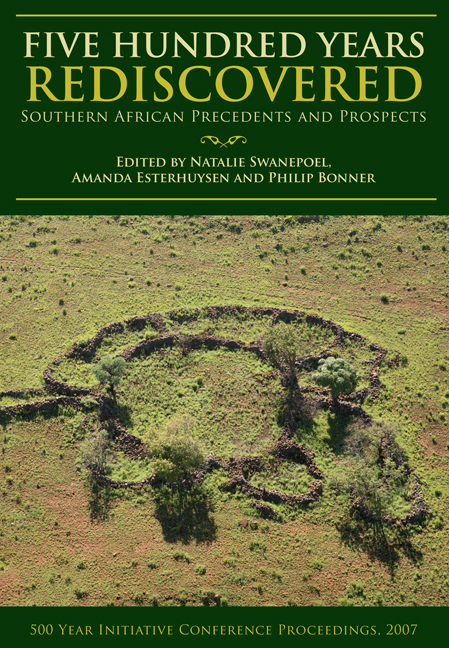Preface
Published online by Cambridge University Press: 30 May 2019
Summary
The last 500 years represents one of the most formative periods of our past, while being, in many senses, the least known. This was a time when, in a jagged and uneven fashion, some of the key cultural contours and categories of modern identities of the sub-continent came into being. It was also a period of enormous internal economic invention and political experimentation in a context where the expanded mercantile force of Europe started to press upon southern African shores and its hinterlands. This suggests that cultural mixing, interaction and change was more a feature of southern Africa in the last 500 years than the standard view of cultural homogeneity and fixity allows.
While a number of notable archaeological studies have focused on this period of South Africa's past, they have been few and far between, and most archaeological energies have been vested in earlier phases of human activity, historically distant from the immediate identities of the present. At the same time, however, the study of African oral traditions and pre-colonial history in southern Africa has in many areas stalled over the last 25 years. We are thus confronted with the irony of an absence of attention to this critical period in the evolution of southern African societies and identities, at the very moment when the notion of an African Renaissance and its archaeological antecedents is being celebrated.
In 2006 researchers from different disciplines (archaeology, history, social anthropology) and institutions (museums and universities) in southern Africa formed a group and began to take steps to fill in this gap and produce a fine-grained understanding of the last 500 years. Initially, the group called themselves the ‘500 Year Research Group’ (FYRG). This was based on the perception that the form and function of a research group, as defined by university and government institutions, offered the best way to formalise and develop the project. After much consultation, it became apparent that a research group would not allow the broad institutional and international membership that the group deemed necessary. Thus, in order to facilitate broader participation and membership, the name was changed to the ‘500 Year Initiative’ (FYI).
- Type
- Chapter
- Information
- Five Hundred Years RediscoveredSouthern African precedents and prospects, pp. vi - viiiPublisher: Wits University PressPrint publication year: 2008



